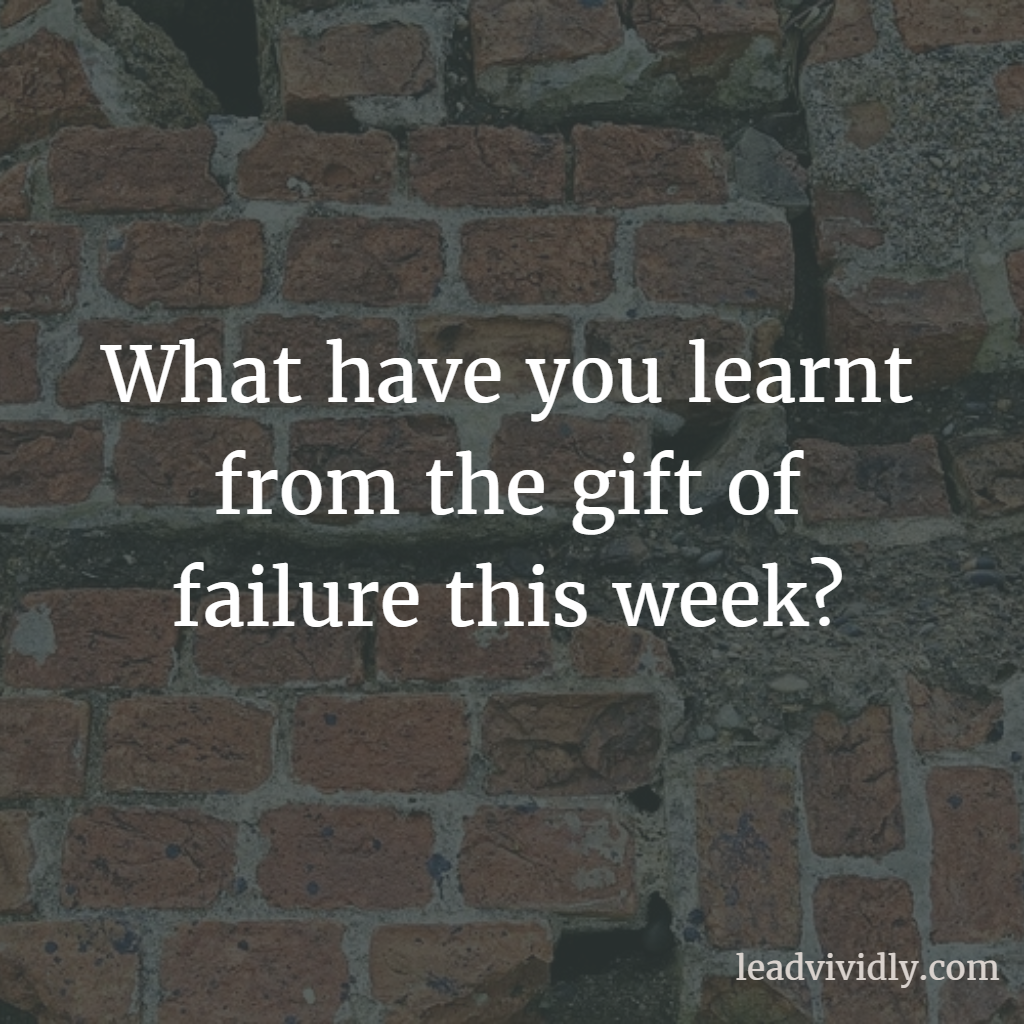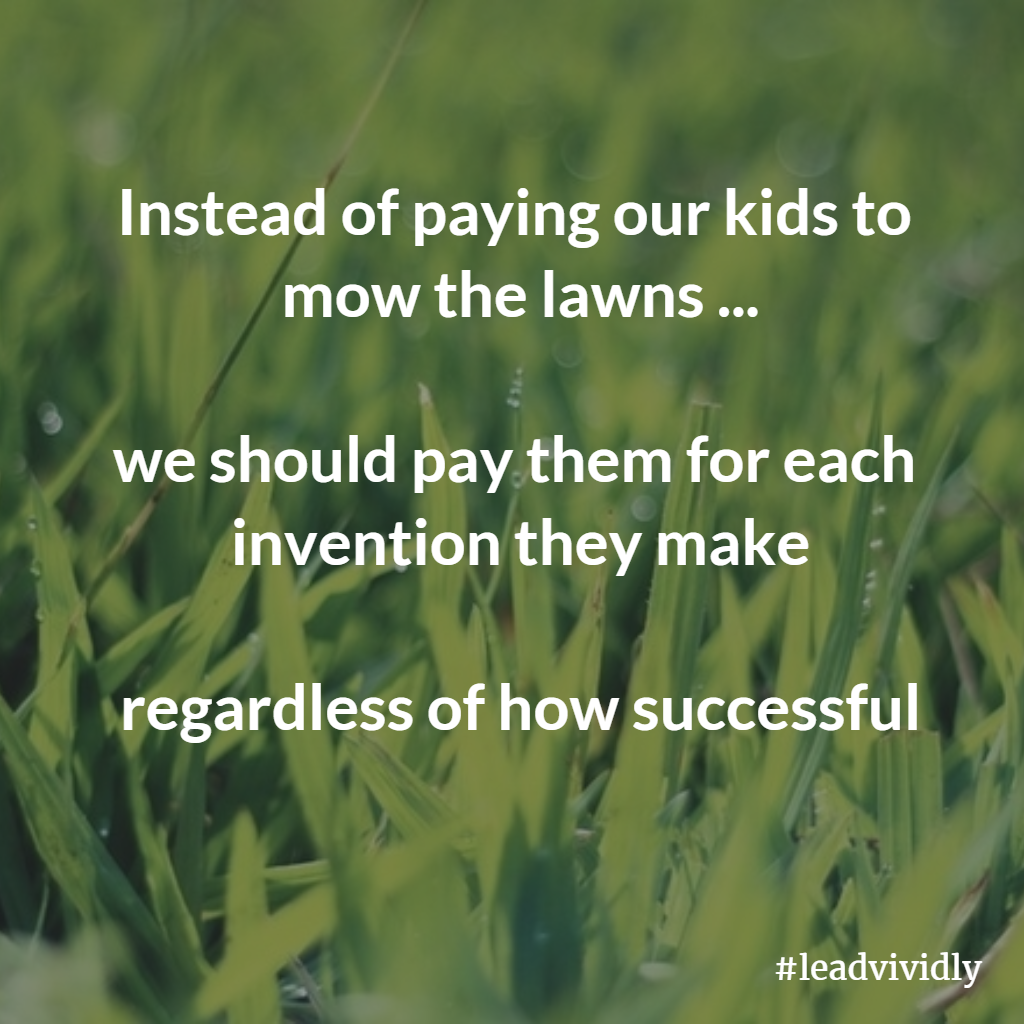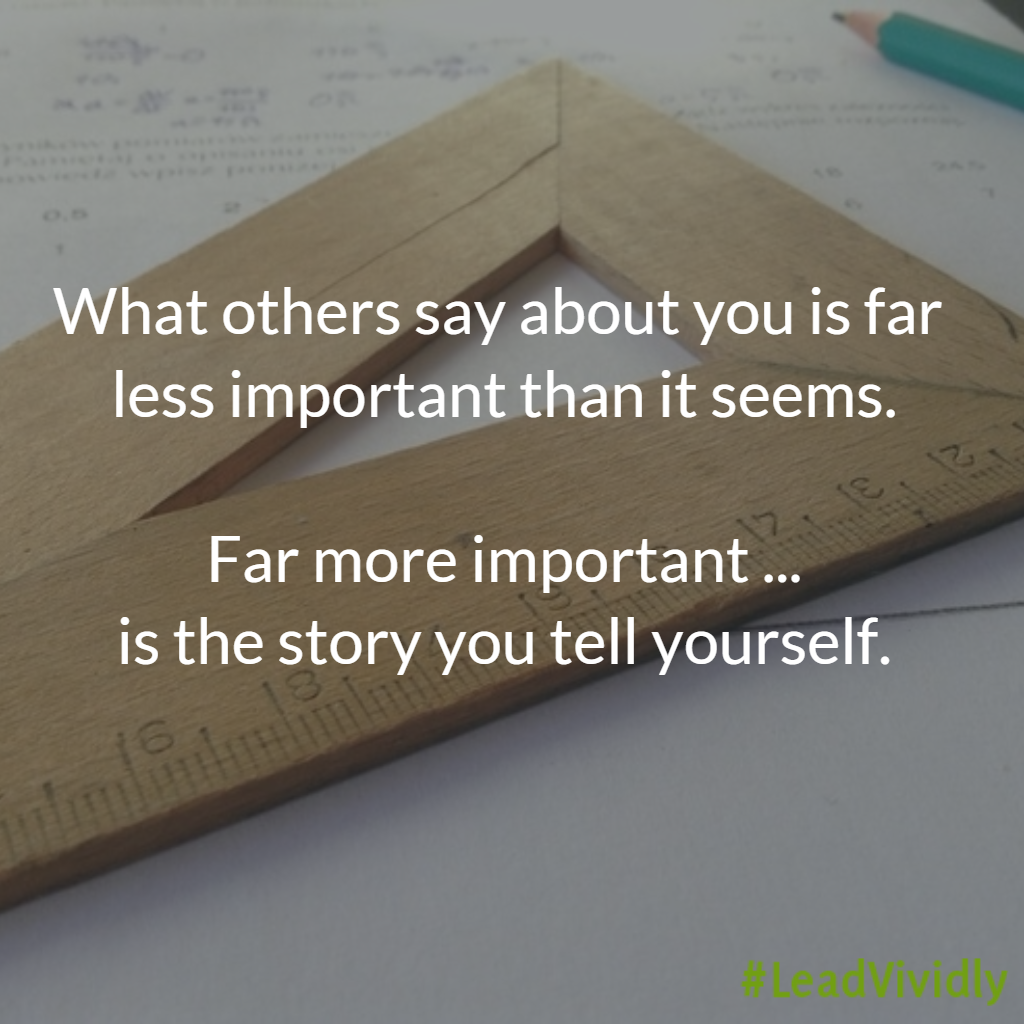
“I hate the word failure and wish it never existed,” I stated as strongly as I could as we reflected on some past experiences.
I shared that the problem with failure is its opposite seems to be pass.
The problem with pass is it has a strong mental connection to school or uni, where you pass or fail.
If you didn’t pass.
You failed.
You were a failure.
Nowadays, particularly in start-ups, ‘failing often’ or ‘failing fast’ is seen as a badge of honour. Because you can learn so much from failure.
Which is why I love how schools are trying their hardest to re-frame the word failure.
My friend who I was sharing all this with said that each Friday, his daughter is asked at her primary school, “What have you learnt from the gift of failure this week?”
Isn’t that a great question! Take another look.
What have you learnt from the gift of failure this week?
∴
I realised in that conversation that I need to intentionally re-frame the word ‘failure’. To stop hating on it.
It should no longer be linked to pass or fail. Rather it should be linked to all the successes I have had as a result of learning from my failure.
Failure can be a gift.
If you learn from it.
What have you learnt from the gift of failure this week?
[pause]
[reflect]
Have you learnt anything?
Because if you haven’t, maybe your stuck in your comfort zone again.
 Around our house we have duties that everyone has to do each week on rotation as a part of being in the family. Then there are the tasks like mowing the lawns which I can do for free, or the kids can do for money.
Around our house we have duties that everyone has to do each week on rotation as a part of being in the family. Then there are the tasks like mowing the lawns which I can do for free, or the kids can do for money. In my final years of high school I was labelled. I was average (to below average). I lacked discipline. I needed to work harder. It would have been easy for me to accept that story and have it define my life.
In my final years of high school I was labelled. I was average (to below average). I lacked discipline. I needed to work harder. It would have been easy for me to accept that story and have it define my life.